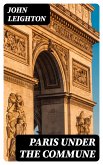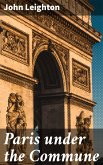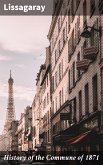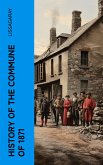In "Paris under the Commune," John Leighton deftly navigates the turbulent waters of the 1871 Paris Commune, illuminating this critical moment in French history through a blend of meticulous scholarship and vivid prose. The book captures the fervent spirit of revolutionary zeal, detailing the sociopolitical upheaval as Parisians sought to forge a new society in the wake of the Franco-Prussian War. Leighton employs a rich narrative style, peppered with first-hand accounts and contemporary reports, which helps to recreate the atmosphere of hope and despair that suffused the streets of Paris during this tumultuous period. John Leighton, a scholar with a deep interest in 19th-century French history, draws from his extensive background in social movements and political theory to present an engaging and accessible exploration of the Commune. His own experiences in exploring revolutionary thought and activism have undoubtedly influenced his portrayal of the ambitious yet ultimately tragic aspirations of the Parisians who strove to establish a socialist order. Leighton's nuanced understanding of the complexities of class struggle is evident throughout the text. This book is highly recommended for anyone interested in revolutionary movements, social justice, and the historical impacts of political ideologies. Leighton's authoritative yet approachable narrative makes it an essential read for students, scholars, and history enthusiasts alike, providing not just an account of events, but an exploration of the human spirit in the face of adversity.
Dieser Download kann aus rechtlichen Gründen nur mit Rechnungsadresse in A, B, BG, CY, CZ, D, DK, EW, E, FIN, F, GR, H, IRL, I, LT, L, LR, M, NL, PL, P, R, S, SLO, SK ausgeliefert werden.









